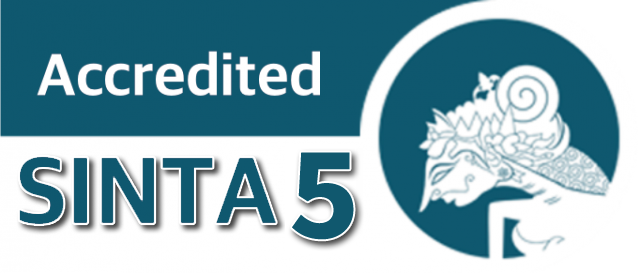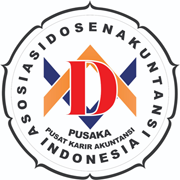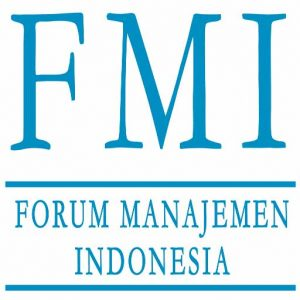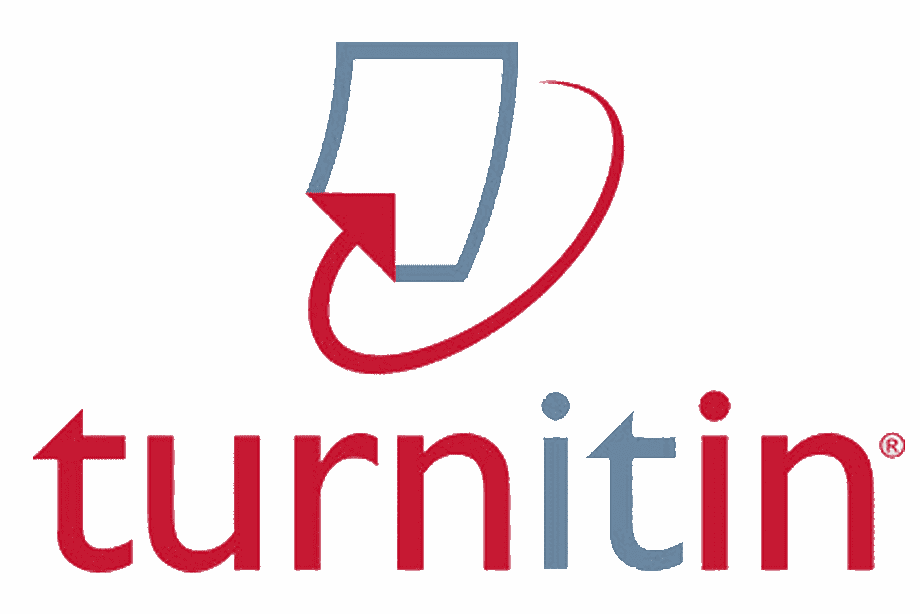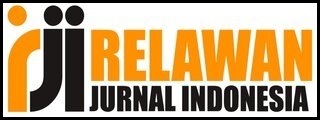Self-Efficacy, Motivation, and Employee Performance in Hospitality Industry: A Mediation Analysis
Keywords:
Self efficacy, Employee Perfromance, Motivation, HospitalityAbstract
It is hypothesized in several research that that times of crisis and turbulence can lead to considerable changes in how organizations, especially those in the inherently volatile tourism industry, manage their strategies. This research primarily aimed to investigate the relationship between self-efficacy and employee performance, with an emphasis on the intermediary role of motivation in a hospitality companies located in Yogyakarta, Indonesia. To fulfil this aim, a quantitative approach was adopted, involving a survey distributed to a group of 100 employees. The gathered data was then examined using Partial Least Square-Structural Equation Model (PLS_SEM) to determine the effect of each variable. The results of the study indicated that Self-Efficacy had significant influence on Motivation and Performance. Also, the results that the indirect path of self-efficacy, motivation and performance is significant and positive and classified as partial mediation. This research offers practical implications for the tourism industry particularly in terms of how effective the management of tourism companies, as business stakeholders maintain their employee’s performance effectively through real implementation particularly during periods of crisis.
References
Ackah, D. (2014a). Global Journal of Management Studies and Researches the Impact of Motivation on Employee Performance in the Manufacturing Industry in Ghana. Global Journal of Management Studies and Researches, 1(5), 291–310. www.academicjournalscenter.org
Ackah, D. (2014b). The Impact of Motivation on Employee Performance in the Manufacturing Industry in Ghana. Global Journal of Management Studies and Researches, 1(5).
Alwisol. (2009). Psikologi Kepribadian. Edisi Revisi. UMM Press.
Arifin, Z., Marzuki Husein, N., Jihadi, M., Prima Rini, H., Prasada, D., & Wijoyo, H. (2021). The Role of Employees Engagement and Self-Efficacy On Employee Performance: An Empirical Study On Palm Oil Company. In Volatiles & Essent. Oils (Vol. 8, Issue 4).
Ayundasari, D. Y., Sudiro, A., & Irawanto, D. W. (2017). Improving Employee Performance Through Work Motivation and Self-Efficacy Mediated by Job Satisfaction. Journal of Applied Management, 15(4). https://doi.org/10.21776/ub.jam.2017.015
Azar, M., & Shafighi, A. A. (2013). The Effect of Work Motivation on Employees’ Job Performance (Case Study: Employees of Isfahan Islamic Revolution Housing Foundation). International Journal of Academic Research in Business and Social Sciences, 3(9). https://doi.org/10.6007/ijarbss/v3-i9/231
Bandura, A., & Locke, E. A. (2003). Negative self-efficacy and goal effects revisited. Journal of Applied Psychology, 88(1), 87–99. https://doi.org/10.1037/0021-9010.88.1.87
Bandura, A., O’leary, A., Taylor, C. B., Gauthier, J., & Gossard, D. (1987). Perceived Self-Efficacy and Pain Control: Opioid and Nonopioid Mechanisms. In Journal of Personality and Social Psychology (Vol. 53, Issue 3).
Bergström, E., & García Martínez, M. (2016). The Influence of Intrinsic and Extrinsic Motivation on Employee Engagement A qualitative study of the perceptions of managers in public and private sector organizations.
Bundy, J., Pfarrer, M. D., Short, C. E., & Coombs, W. T. (2017). Crises and Crisis Management: Integration, Interpretation, and Research Development. Journal of Management, 43(6), 1661–1692. https://doi.org/10.1177/0149206316680030
Çetin, F., & Aşkun, D. (2018). The effect of occupational self-efficacy on work performance through intrinsic work motivation. Management Research Review, 41(2), 186–201. https://doi.org/10.1108/MRR-03-2017-0062
Cherian, J., & Jacob, J. (2013). Impact of Self Efficacy on Motivation and Performance of Employees. International Journal of Business and Management, 8(14). https://doi.org/10.5539/ijbm.v8n14p80
Chintalloo, S., & Mahadeo, J. D. (2013). Effect of Motivation on Employees’ Work Performance at Ireland Blyth Limited.
Dahles, H., & Susilowati, T. P. (2015). Business resilience in times of growth and crisis. Annals of Tourism Research, 51, 34–50. https://doi.org/10.1016/j.annals.2015.01.002
Darsana I M, & Sudjana I M. (2022). A Literature Study of Indonesian Tourism Human Resources Development in the Era of Society 5.0 I Made Darsana 1, I Made Sudjana 2. Al-Ishlah: Jurnal Pendidikan, 14(3), 2691–2700. https://doi.org/10.35445/alishlah.v14i1.2014
Day, R., & Allen, T. D. (2004). The relationship between career motivation and self-efficacy with protégé career success. Journal of Vocational Behavior, 64(1), 72–91. https://doi.org/10.1016/S0001-8791(03)00036-8
Engidaw, A. E. (2021). The effect of motivation on employee engagement in public sectors: in the case of North Wollo zone. Journal of Innovation and Entrepreneurship, 10(1). https://doi.org/10.1186/s13731-021-00185-1
Estiri, M., Heidary Dahooie, J., & Skare, M. (2022). COVID-19 crisis and resilience of tourism SME’s: a focus on policy responses. Economic Research-Ekonomska Istrazivanja, 35(1), 5556–5580. https://doi.org/10.1080/1331677X.2022.2032245
Gössling, S., Scott, D., & Hall, C. M. (2020). Pandemics, tourism and global change: a rapid assessment of COVID-19. Journal of Sustainable Tourism, 1–20. https://doi.org/10.1080/09669582.2020.1758708
Hair Jr Joseph F, Hult G. Tomas M., Ringle Christian M, Sarstedt Marko, Danks NicholasP., & Ray Soumya. (2021). Classroom Companion: Business Partial Least Squares Structural Equation Modeling (PLS-SEM) Using R AAWorkbook.
Hall, M. C. (2010). Crisis events in tourism: Subjects of crisis in tourism. Current Issues in Tourism, 13(5), 401–417. https://doi.org/10.1080/13683500.2010.491900
Hemakumara, H. (2020). The Impact of Motivation on Job Performance: A Review of Literature. Journal of Human Resources Management and Labor Studies, 8(2). https://doi.org/10.15640/jhrmls.v8n2a3
Henseler, J., Ringle, C. M., & Sarstedt, M. (2015). A new criterion for assessing discriminant validity in variance-based structural equation modeling. Journal of the Academy of Marketing Science, 43(1), 115–135. https://doi.org/10.1007/s11747-014-0403-8
Iroegbu, N. M. (2015). Self Efficacy and Work Performance: A Theoretical Framework of Albert Bandura&aposes Model, Review of Findings, Implications and Directions for Future Research. Psychology and Behavioral Sciences, 4(4), 170. https://doi.org/10.11648/j.pbs.20150404.15
Maddux, J. E., & Kleiman, E. M. (2021). Self-Efficacy: The Power of Believing You Can.
Na-nan, K., Chaiprasit, K., & Pukkeeree, P. (2018). A validation of the performance management scale. International Journal of Quality and Reliability Management, 35(6), 1253–1267. https://doi.org/10.1108/IJQRM-04-2017-0064
Na-Nan, K., & Sanamthong, E. (2020). Self-efficacy and employee job performance: Mediating effects of perceived workplace support, motivation to transfer and transfer of training. International Journal of Quality and Reliability Management, 37(1), 1–17. https://doi.org/10.1108/IJQRM-01-2019-0013
Robbins, S. P., Judge, T. A., & Millett, B. (2015). OB: the essentials. Pearson Higher Education AU.
Sartono, H., & Ardhani, M. (2015). Work Engagement, Intrinsic Motivation and Job Satisfaction among Employees of a Coal Mining Company in South Borneo.
Schunk, D. H., & DiBenedetto, M. K. (2021). Self-efficacy and human motivation. In Advances in Motivation Science (Vol. 8, pp. 153–179). Elsevier Ltd. https://doi.org/10.1016/bs.adms.2020.10.001
Sekaran, U., & Bougie, R. (2016). Research methods for business: A skill building approach. John Wiley & Sons, Ltd.
Shahzadi, I., Javed, A., Pirzada, S. S., Nasreen, S., & Khanam, F. (2014). Impact of Employee Motivation on Employee Performance - CORE Reader. European Journal of Business and Management, 6(23).
Shahzadi, I., Javed, A., Shahzaib Pirzada, S., Nasreen, S., & Khanam, F. (2014). Impact of Employee Motivation on Employee Performance. In European Journal of Business and Management www.iiste.org ISSN (Vol. 6, Issue 23). Online. www.iiste.org
Sharma, S., & Rautela, S. (2022). Entrepreneurial resilience and self-efficacy during global crisis: study of small businesses in a developing economy. Journal of Entrepreneurship in Emerging Economies, 14(6), 1369–1386. https://doi.org/10.1108/JEEE-03-2021-0123
Shin, M.-H. (2018). Effects of Project-based Learning on Students’ Motivation and Self-efficacy. English Teaching, 73(1), 95–114. https://doi.org/10.15858/engtea.73.1.201803.95
Siddiqi, T., & Tangem, S. (2018). Impact of Work Environment, Compensation and Motivation on The Performance of Employees in The Insurance Companies of Bangladesh. South East Asia Journal of Contemporary Business, Economics and Law, 15.
Singh TD, Bhardwaj G, & Bhardwaj V. (2009). Effect of Self-Efficacy on the Performance of Athletes. In Journal of Exercise Science and Physiotherapy (Vol. 5, Issue 2).
Smith, H. M., & Betz, N. E. (2000). Development and Validation of a Scale of Perceived Social Self-Efficacy.
Tims, M., Bakker, A. B., & Derks, D. (2014). Daily job crafting and the self-efficacy – Performance relationship. Journal of Managerial Psychology, 29(5), 490–507. https://doi.org/10.1108/JMP-05-2012-0148
Downloads
Published
How to Cite
Issue
Section
License
Copyright (c) 2024 Daniel Yudistya Wardhana, Harsono Harsono

This work is licensed under a Creative Commons Attribution-ShareAlike 4.0 International License.

This work is licensed under a CC Attribution-ShareAlike 4.0

 Daniel Yudistya Wardhana
Daniel Yudistya Wardhana
 Faculty of Business and Economics, Universitas Atma Jaya, Yogyakarta
Faculty of Business and Economics, Universitas Atma Jaya, Yogyakarta

